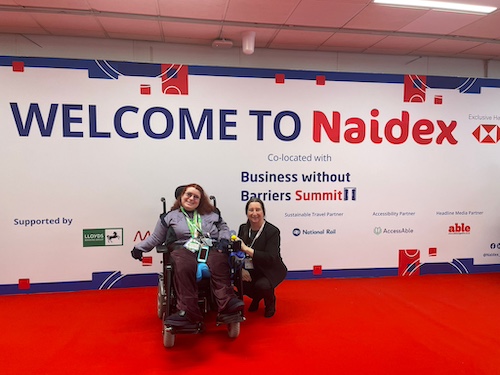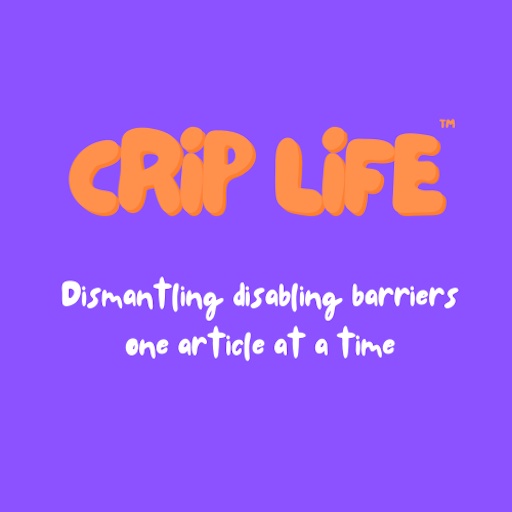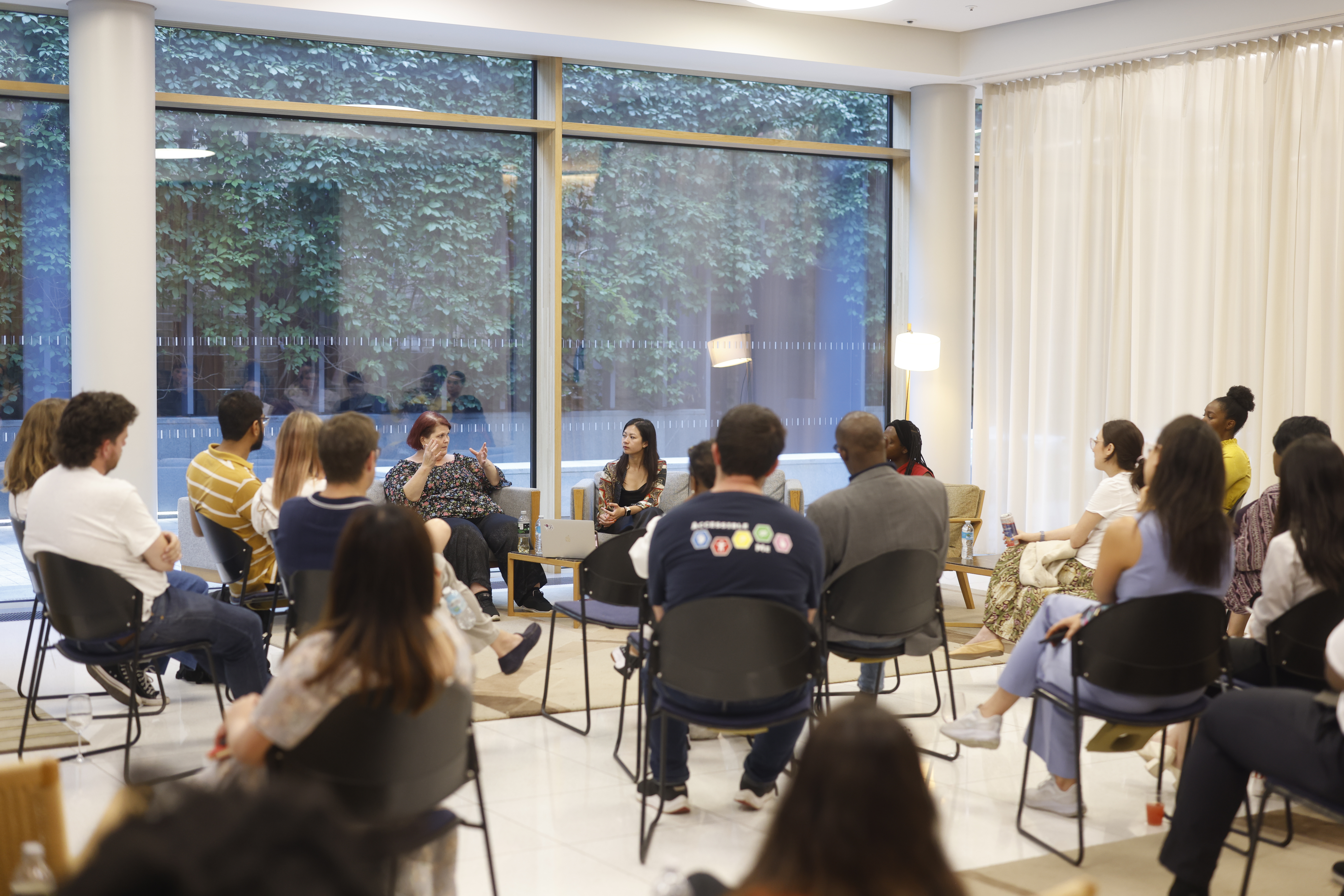
What do you do?
I’m the co-founder and editor of the online disability magazine Crip Life™. The publication was launched in May 2023 alongside my colleague, Joanna Baker Rogers, who is our advertising manager.
I am essentially in charge of all content on the website. I write up exclusive features and news stories, conduct interviews, and edit and upload pieces for paid partnerships and personal stories from the community. I also create and send out newsletters, manage our social media channels and maintain all technical aspects of the website.
Since launching almost 18 months ago, Crip Life™ has published over 165 articles, secured exclusive interviews and collaborated with over a dozen companies.
What inspired you to start your business?
I’ve always had a passion for writing and my ambition has always been to be a journalist. I studied for a degree in journalism and went on to try and secure a role either in a publication or broadcasting news outlet. I applied for many graduate schemes at the BBC, ITV, Channel 4 and many other organisations but unfortunately, I was unsuccessful on every occasion.
Fortunately, in 2020, after working voluntarily with them since 2012, I was offered freelance work at the online magazine Disability Horizons. For the next three years, I went on to become one of their main writers and editors, publishing hundreds of articles. Sadly, the publication closed down in April 2023.
This then led to Joanna and I coming up with the idea of launching our own publication. With my skills as a writer and editor and her skills as an advertising manager and business owner, we thought we made the perfect team to start our own business together.
What does a typical day look like for you?
I work from home and conduct all my work on my MacBook. I think many people underestimate how much work goes into running this website.
There is the planning and researching for article ideas, reading through and responding to press releases and story pitches, prepping and conducting interviews, negotiating paid partnerships, writing up, proofreading and editing content, uploading and styling content on the website, downloading, resizing and editing images and managing and scheduling social media content.
Thankfully, being freelance, I don’t have strict work hours. Depending on my workload, I usually work from around 8:30am up until 6pm (with toilet breaks, lunch breaks and a few power naps in between). Then, if I have a tight deadline coming up, I sometimes work in the evening up until about 10pm or sometimes continue working in bed past midnight.
What was the biggest challenge you faced in starting your business, and how did you overcome it?
The biggest challenge we have faced and continue to face is growing our readership. Although we have reached 33K visitors in the past three months, if you look deeper into the statistics, the number of individual article views, retaining visitor numbers and the amount of time people are on our site is still fairly low. In addition, despite thousands of individual visitors, our newsletter subscription numbers are still only in the hundreds. We continue to find different ways to grow our readership, but it can be extremely difficult.
Furthermore, we have the challenge of securing paid partnerships with businesses and organisations. We have a Pay What You Can advertising service, which is a business model that does not insist upon set prices for its goods or services. Instead, it asks clients to pay what they feel the product or service is worth to them. We have taken this one step further by adding what an organisation can afford to pay.
However, many companies and PR agencies expect us to write all our content for free. We understand that businesses have budgets but at the same time, you wouldn’t expect people in other industries to do all their work for free.
Also, we acknowledge that the bigger the readership, the more likely companies will choose to advertise with us, meaning we need to grow our visitor numbers to secure more paid partnerships.
Running an online magazine does cost money with administrative costs such as hosting platforms, video conference platforms, SEO tools, accessibility tools, social media advertising fees, and much more.
We would like to grow the business by taking on more paid employees and freelancers and eventually get a decent income for our co-founders. But so far, it has been on a tight budget and mostly self-funded.
How do you ensure your business remains accessible to employees or customers with disabilities?
Our website has a simple layout with easy navigation tools and is compatible with screen readers. We make sure all images have detailed alternative text descriptions, which we create via Chat GPT.
We, of course, want to strive to make our website as accessible as possible, so we have an accessibility survey for readers to fill out if they wish to give feedback on our accessibility features and suggest ways to improve it further.
What do you consider your biggest achievement in business so far?
I’ve had the pleasure of interviewing multiple high-profile disabled people, including actors Jack Carroll, Tommy Jessop & Arthur Hughes, comedian Chris McCausland, inclusive fashion designer Victoria Jenkins, plus many more.
Also, we have recently conducted a ParalympicsGB debutants interview series, interviewing a variety of Paralympic athletes heading to their first Paralympic Games in Paris.
I’ve also written several opinion and feature pieces, including a review of Rosie Jones’ ableism documentary, a piece discussing whether sports broadcasters are ableist towards disability sports, an article asking why fireworks affect disabled people and content celebrating disabled climate activists.
Other content so far has included 13 Disability Dating Sites To Help You Find Love, Friendship And Companionship, 11 TV Adverts Featuring Disabled People, 9 Disability Pride 2023 Events To Enjoy Across The UK, an LGBTQ+ Pride series, a variety of news content, plus much more.
In addition, despite the challenges of securing advertising, we’ve been fortunate enough to collaborate with over a dozen companies in the past 18 months, including Nimbus Disability, LanzAbility, Southbank Centre, Transport for London and most recently, the Royal Opera House.
Moreover, we had the pleasure of being shortlisted in the 2024 BizBubble Awards and the Shaw Trust Disability Power 100.
How do you balance your health and wellbeing with the demands of running a business?
I admit I am definitely a workaholic. As I mentioned above, I can pretty much work most of the day, through the evening and into the night. I was working from home before it became popular. It’s so much easier working in your own space. I don’t like many distractions and I like to work independently on my own
I use a powered wheelchair and if I get any discomfort, I can easily recline my seat and elevate my legs using the remote controls on my chair.
Living with a rare eye condition, my eyes can strain after looking at the computer too long but I’m good at taking micro-breaks where I can just close my eyes and rest between tasks. This usually turns into 20-minute power naps, but I read somewhere that power naps stimulate both attention and performance.
Also, working as a self-employed person means I can work flexibly and work as and
when I wish. This means if other personal commitments come up, such as hospital
appointments or meetings with social services, I can easily fit them in around my work
day.
I’m also good at organising and prioritising the work I do so I don’t get too overwhelmed.
If, for whatever reason, there is a delay in getting things finished, I will simply explain to
the individuals involved in this project that there may be a delay in finishing this content
for a few days or weeks until I am caught up again, Most of the time, individuals and
companies are very accommodating in this.
What excites you most about the future of your business?
We’ve gained a lot of interest in people sending us their personal stories to share on our platform and I’m looking forward to publishing those and continuing to include a variety of different disability voices over the coming months and years.
I keep hoping we will get that viral hit and become the most popular and best online disability magazine!
What advice would you give to aspiring entrepreneurs who want to start their own business?
Make sure you have a co-founder to join on your journey, as you can bounce off ideas with each other and support each other along the way.
Don’t expect to be successful quickly and make sure you have backup income coming in until you start making money on this business, whether that’s continuing another job or claiming benefits.
Create a business you’re passionate about and do it because you love it!
You can find out more about Crip Life™ by visiting criplife.co.uk and following
Crip Life™ on Facebook, Twitter, Instagram and LinkedIn.




